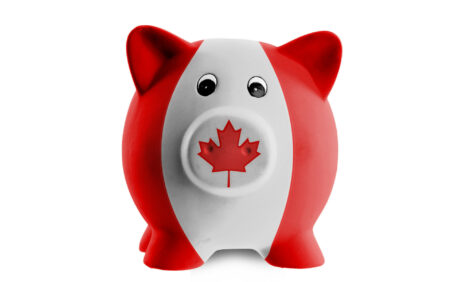



"Dont tax our pigs" say PTAC
WASHINGTON, D.C - The Pork Trade Action Coalition (PTAC) initiated a new advertising campaign today, stating, "Don't Tax Our Pigs!" in opposition to the duties placed by the U.S. Department of Commerce (DOC) on imported Canadian pigs.
The ad, running in the Des Moines Register, is signed by seventy-seven independent Iowa farmers and calls on all farmers in the state to "join us to fight this unfair tax."
On October 15th, the DOC announced preliminary duties ranging from 13.25
percent to 15.01 percent on imported Canadian pigs. The case began earlier
this year when the National Pork Producers Council (NPPC) and other groups
filed the petition with the International Trade Commission (ITC) alleging
that Canadian hog producers were exporting hogs at a price below their cost
of production, or "dumping."
The advertisement states, "Some of the largest packer-owner producers in the
U.S. support this Odumping case¹ and stand to gain from closing the border
to swine imports. Make no mistake, this is really a tax on the U.S. farmer."
It goes on to say, "We call on all Iowa farmers to join us to fight this
unfair tax. Fight for Iowa farmers. Tell the Commerce Department NOT to tax
our Pigs!"
Many U.S. pig farmers buy 10-pound "weanlings" (baby pigs) or 50-pound
"feeder pigs" and raise them to market weight d about 260 pounds d in the
United States. These farmers sell their hogs in direct competition with the
large packer-owners, and rely on Canadian weanlings and feeders to support
their operations.
PTAC member Dr. Tom Samp, a veterinarian and owner of Unique Swine Systems,
a co-op of over 200 producers in Iowa and five other states said, "I became
a member of PTAC and signed on to this ad campaign because I am absolutely
against these duties. This tax could put me out of business!"
He continued, "I can¹t get the pigs I need in the U.S., which is why I
import them from Canada and raise and sell them here. Many farmers in this
area also import Canadian pigs and are stuck in the same harmful situation
with this tax. I hope others will join in the fight so we can work together
to end the duties."
In addition to Dr. Samp, seventy-six farmers from cities all over Iowa such
as Mingo, Newton, West Union, Le Mars and Grundy Center have signed on to
the campaign. Iowa is a major importer of Canadian swine, buying 2.7
million young Canadian pigs in 2003, more than half of the 5 million young
pigs that were shipped into the United States from Canada that year.
Secretary John R. Block, former U.S. Secretary of Agriculture and a Senior
Advisor to PTAC spoke of the increased efforts the Coalition is engaging in,
saying, "PTAC is prepared to do whatever it takes to end this unfair tax on
hundreds of farmers across the country. We can¹t stand by and watch small
farmers across the U.S. risk losing their business that they have worked so
hard to build. If the effort takes advertising, if it takes all Iowa
farmers writing their local Member of Congress, if it takes more legal work,
then PTAC is prepared to do that. We firmly believe that in the end, the
facts will show that imports are not injuring the U.S. industry and the
duties will be eliminated."
The DOC will make its final determinations early next year, and duties may
increase or decrease from the preliminary determinations. The International
Trade Commission (ITC) is expected to make a final determination on the
question of whether imports have injured the U.S. industry by March 2005.
To view the PTAC ad, go to:
http://porktradeaction.org/PTAC_DontTaxOurPigs.pdf (PDF)
For more information on the Pork Trade Action Coalition or a copy of the DOC fact sheet on the preliminary decision, please contact Dara Klatt at (202) 466-6210 or [email protected].
Source: Pork Trade Action Coalition - 29th October 2004









